Programming with Python offers a wide range of possibilities, especially when it comes to handling parameters in functions. Parameter systems are crucial for flexible and maintainable coding, as they allow functions to be used versatilely. In this guide, I will detail various types of parameters and their applications.
Key Insights
- Functions use positional parameters, which are bound to the order of arguments.
- Keyword parameters allow the passing of arguments independently of their order.
- Default values can be defined to implement standard behavior in functions.
- Dynamic parameters via *args and **kwargs offer flexibility for varying numbers of arguments.
Step-by-Step Guide
1. Positional Parameters
First, it is important to understand what positional parameters are. Suppose you want to establish a connection to a database. In this case, it is essential that the arguments are passed in the correct order.
To make it clear, let’s build a simple function that takes a username and a password.
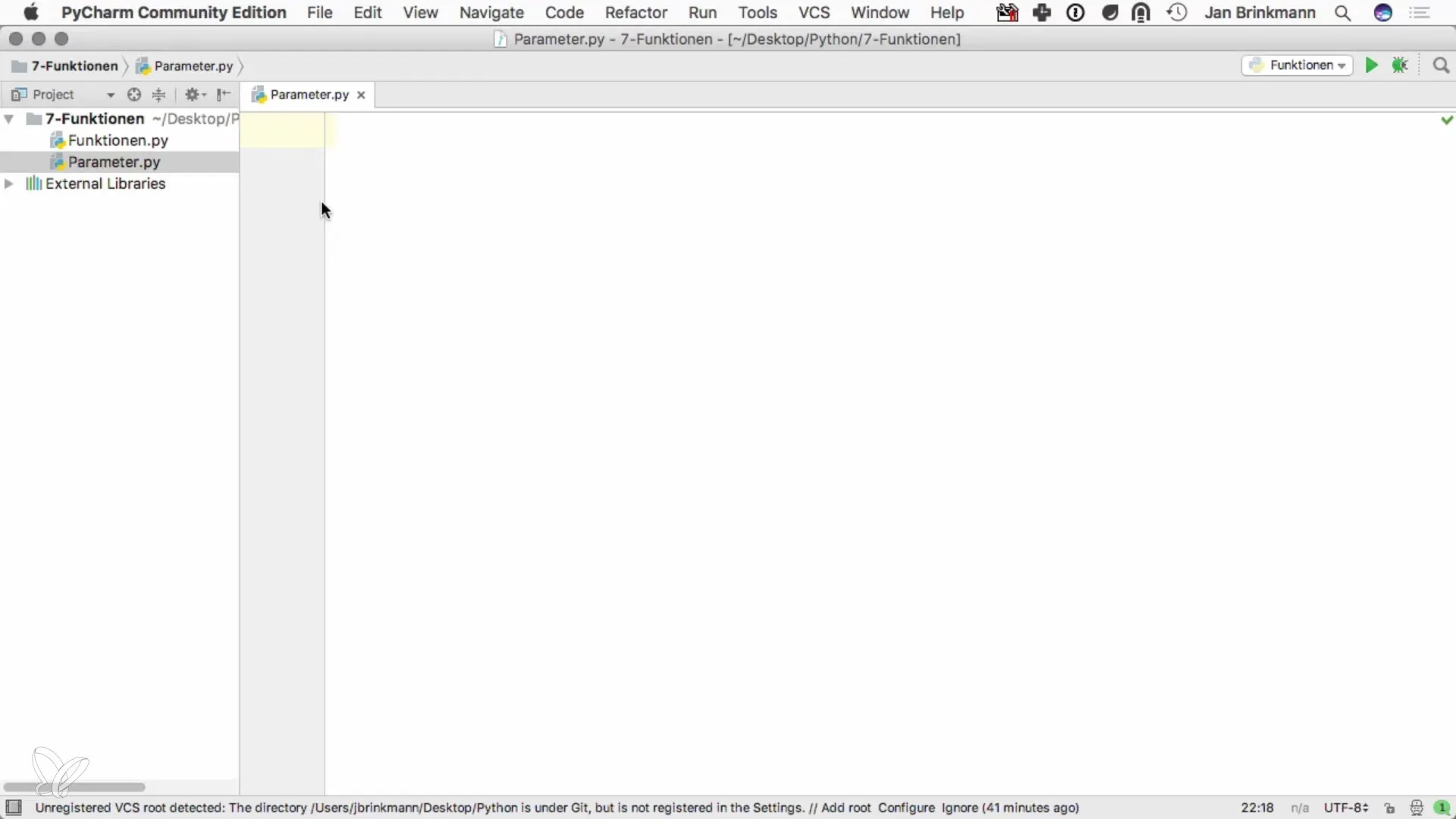
When you call this function, the order is crucial. This way, the username is passed first, followed by the password.
Here you can see that the output is correct because the parameters were passed in the intended order. If you swap the order, it won't work as desired.
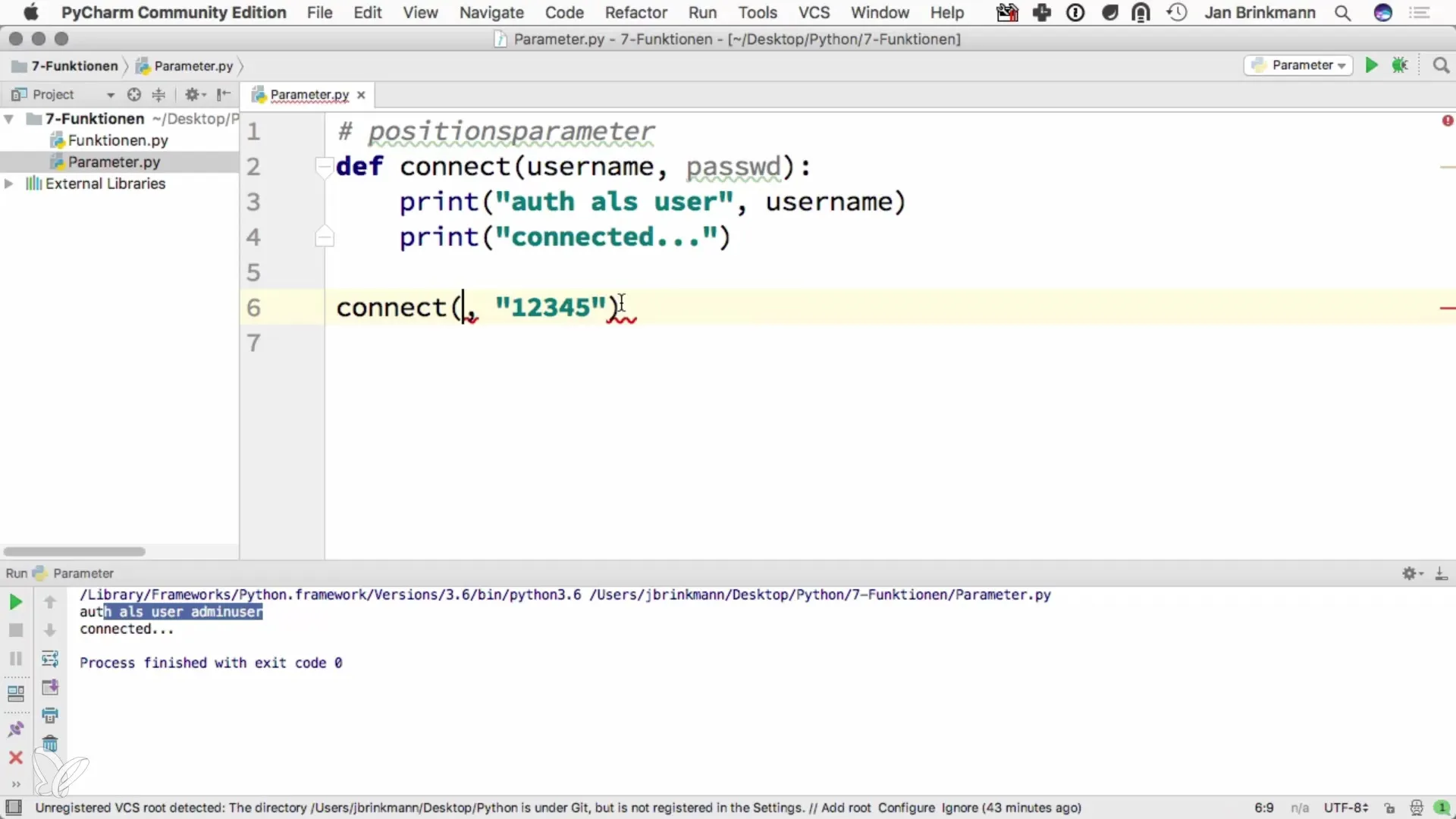
2. Keyword Parameters
To bypass the order restriction, you can use keyword parameters. This gives you the flexibility to pass arguments in any order.
The connect function remains unchanged. However, you can now call it like this:
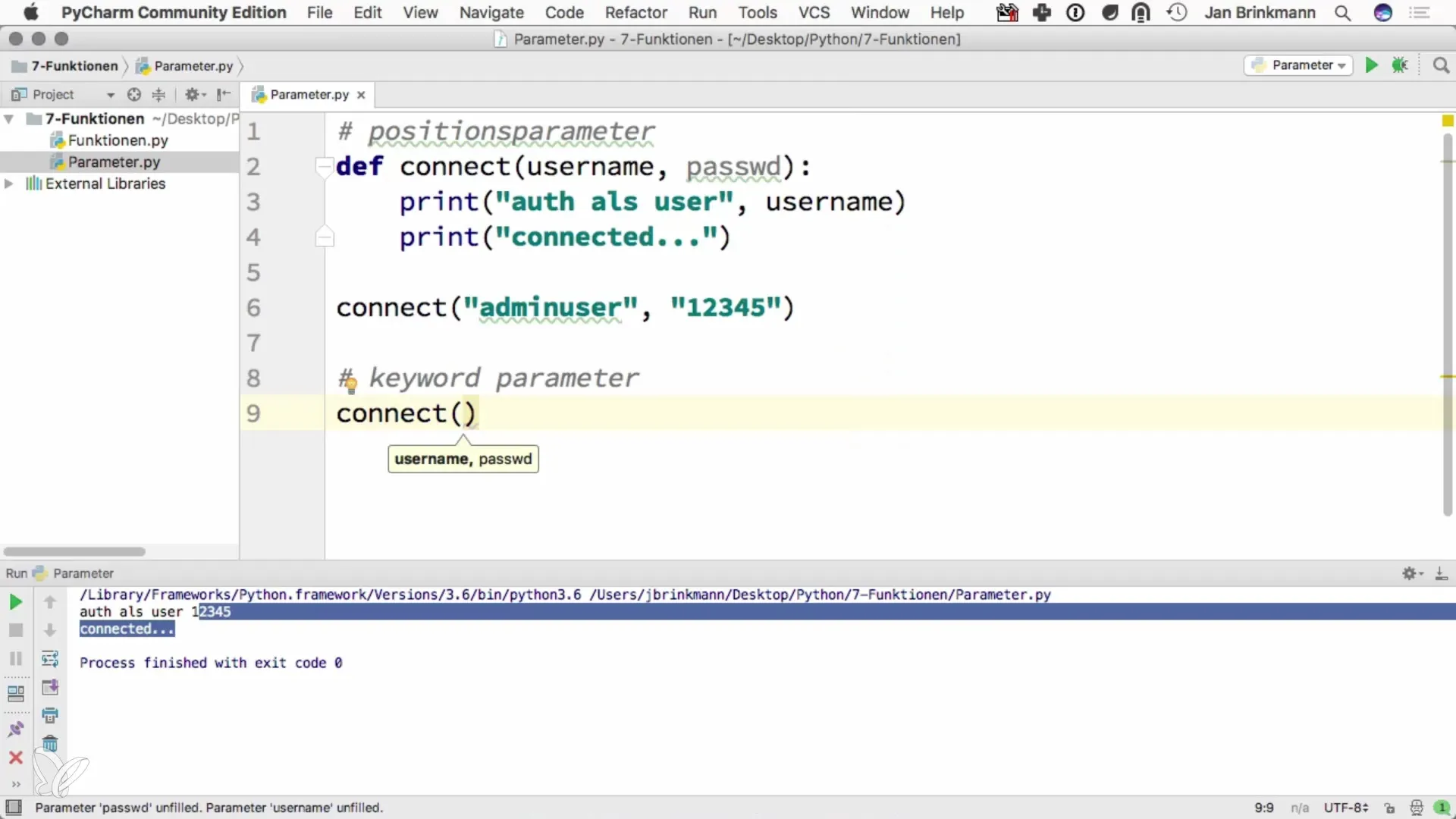
Here, you can specify the parameters by naming them, which improves the readability of the code while avoiding errors due to order.
3. Default Values
A useful extension is the definition of default values for parameters. Suppose the connection should default to localhost unless another host is specified.
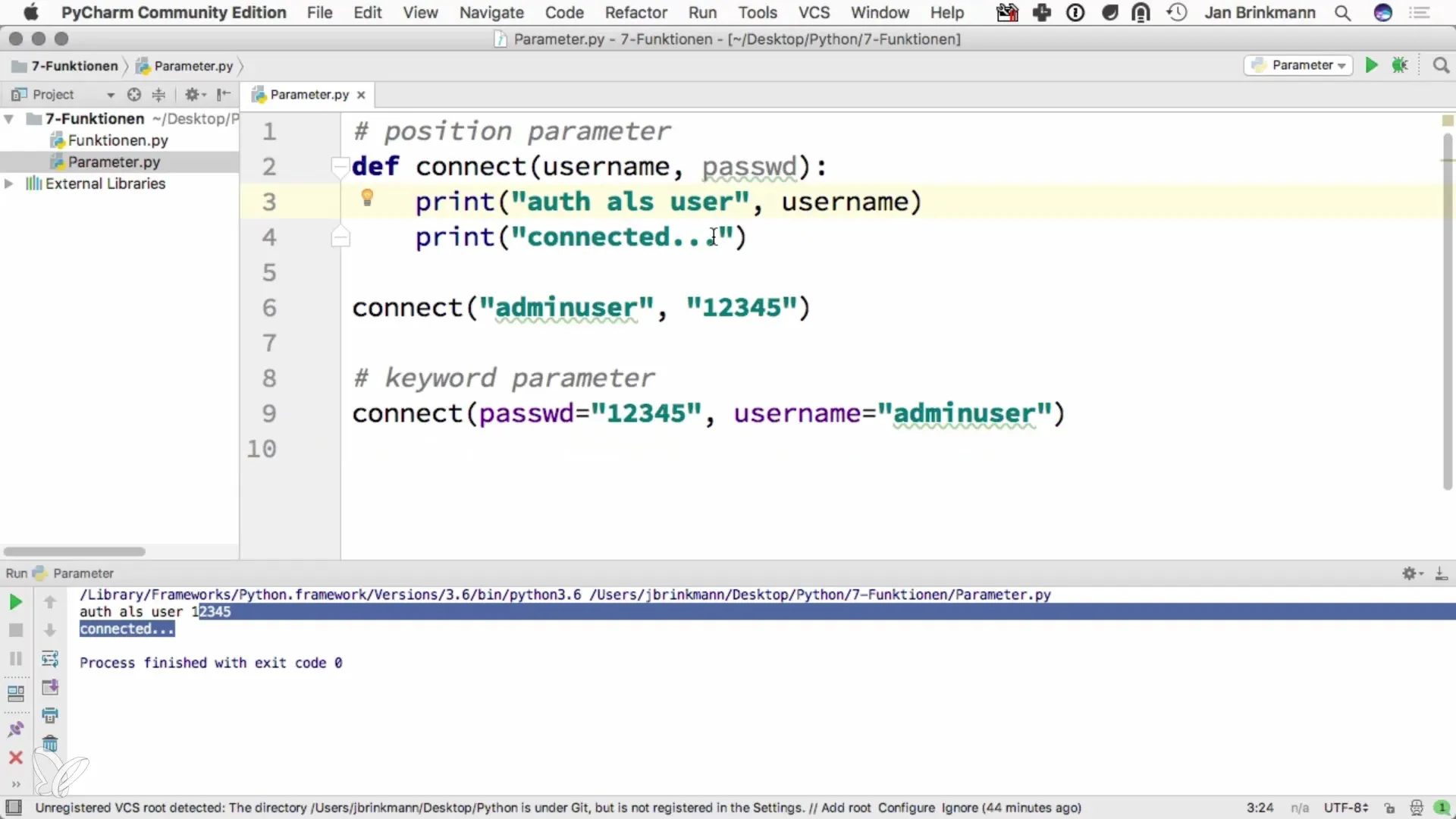
With this function, you can still use the same code, but the connection will default to localhost if no other host is specified.
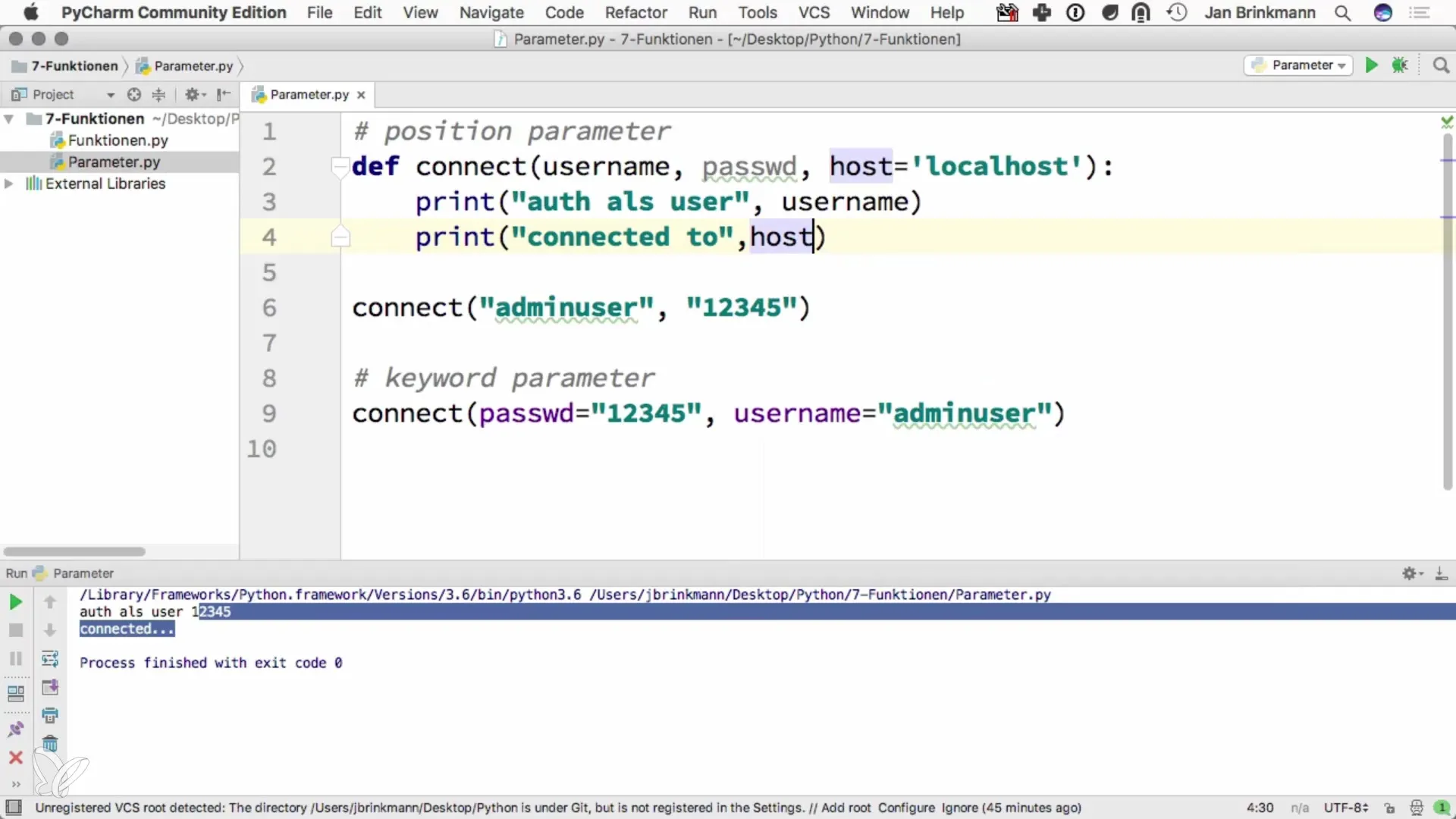
In this example, "Connected to localhost" is output. If another host is needed, you can simply pass it.
Now you see that the connection is established to another host.
4. Dynamic Parameters – *args
When it comes to writing a function where the number of arguments to be processed is not fixed, you can use *args.
Suppose you want to create a function to add any number of numbers. The implementation might look like this:
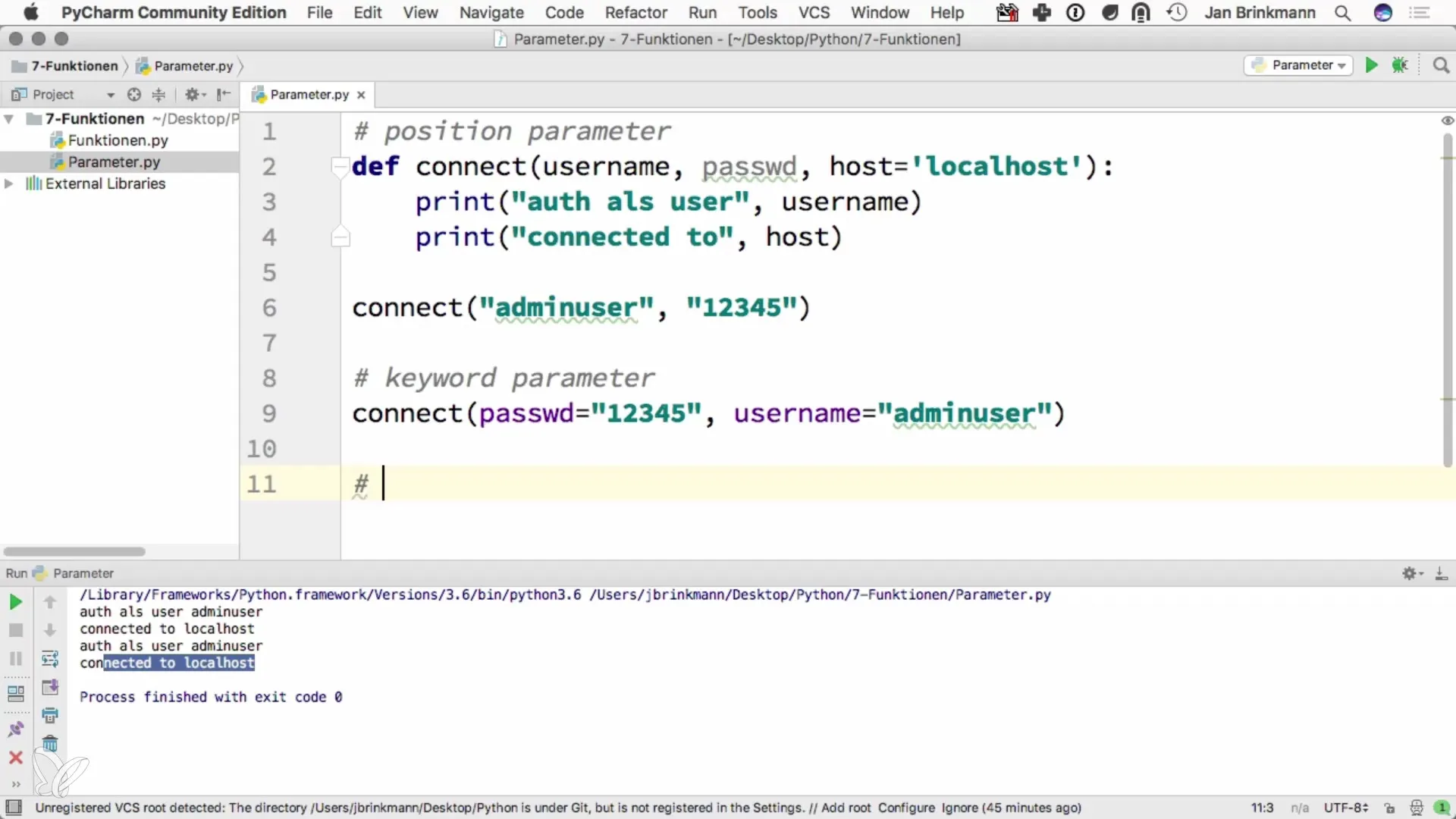
Now you can call the function as follows:
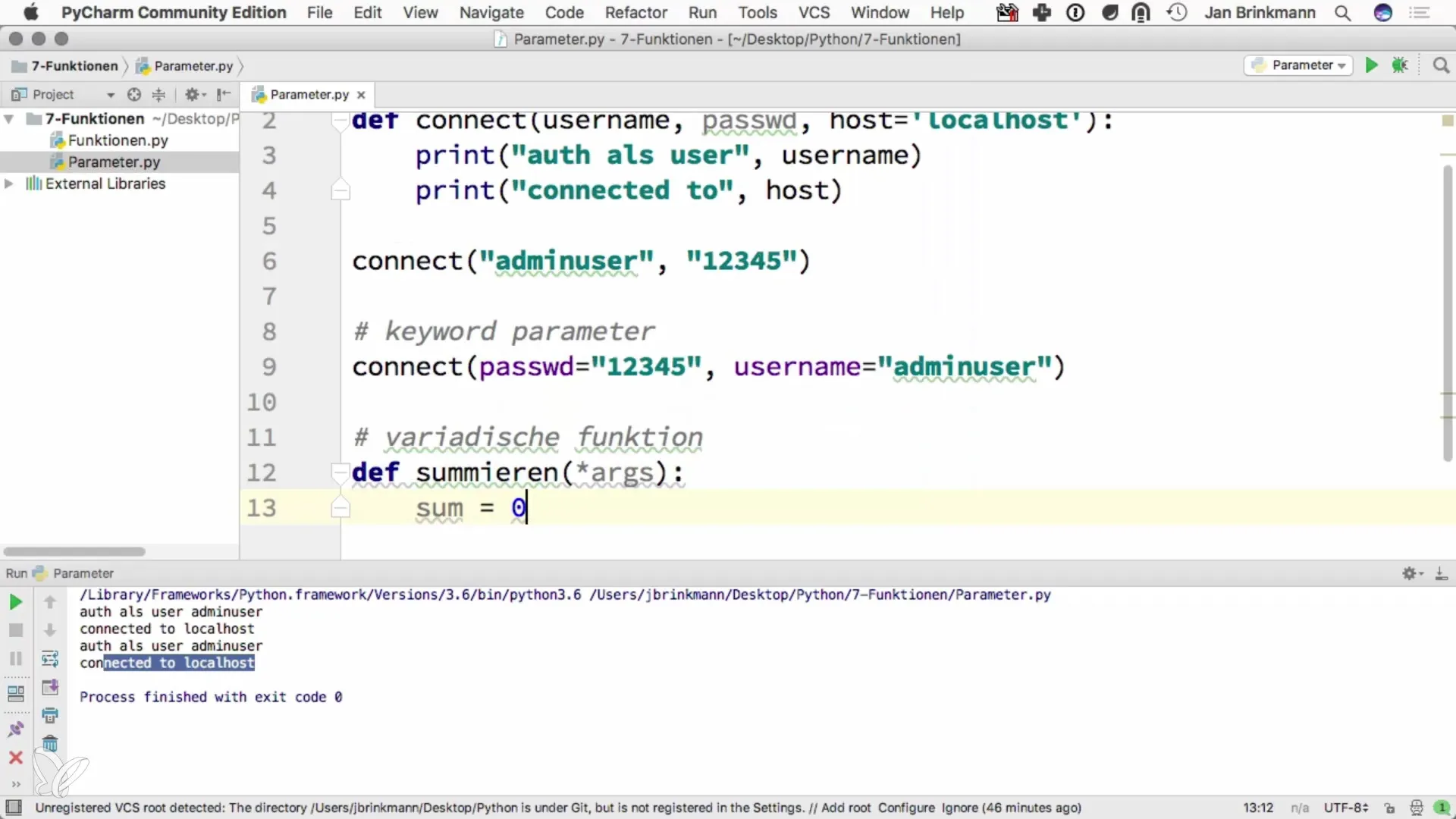
Here the output will be the sum of all the numbers passed: 15.
5. Mixed Parameters – **kwargs
In addition to *args, you can use **kwargs to dynamically pass keyword parameters. This is especially useful when you want to work with dictionaries.
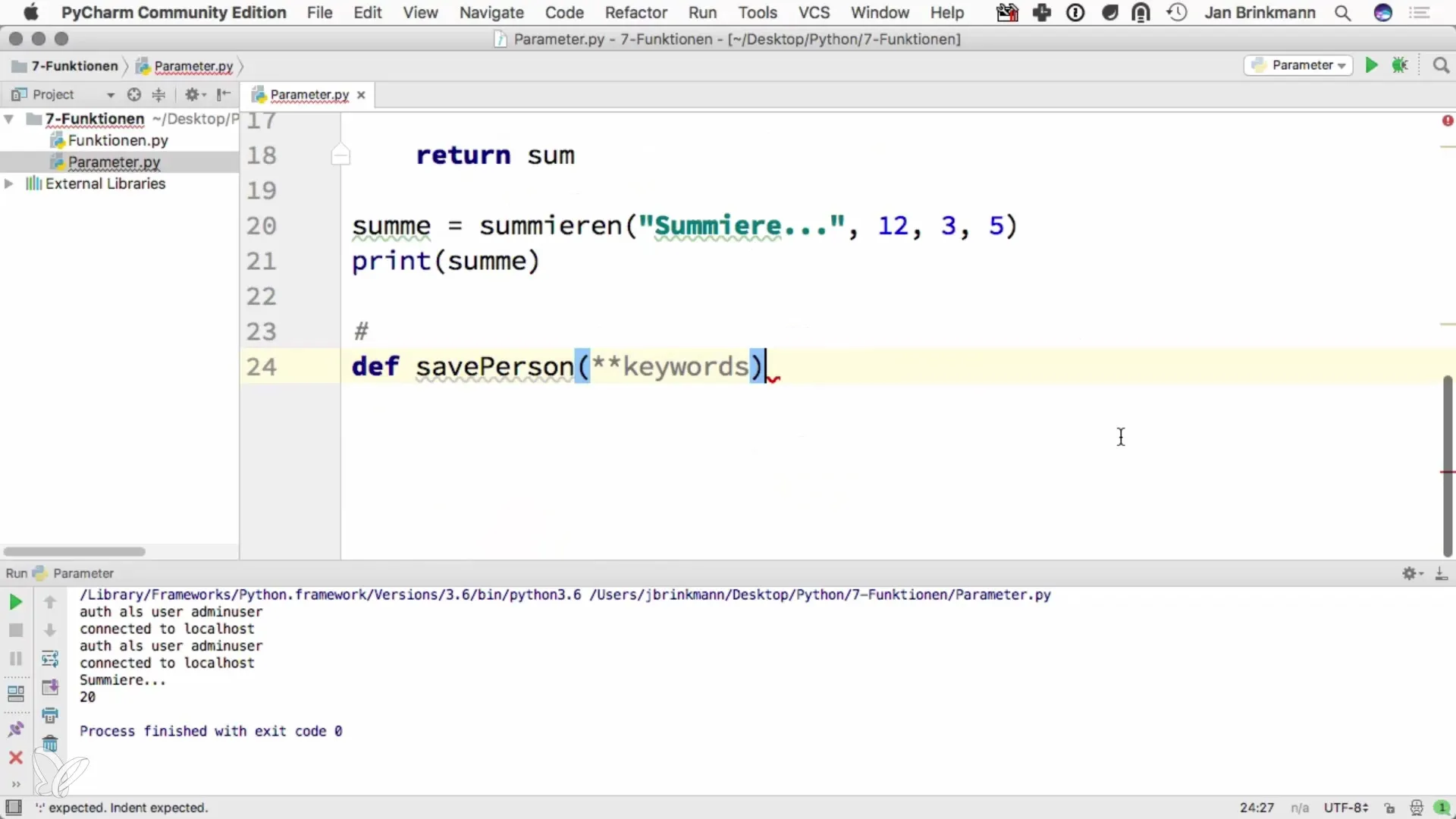
When you call the function, you can pass any number of parameters, and a dictionary will be created.
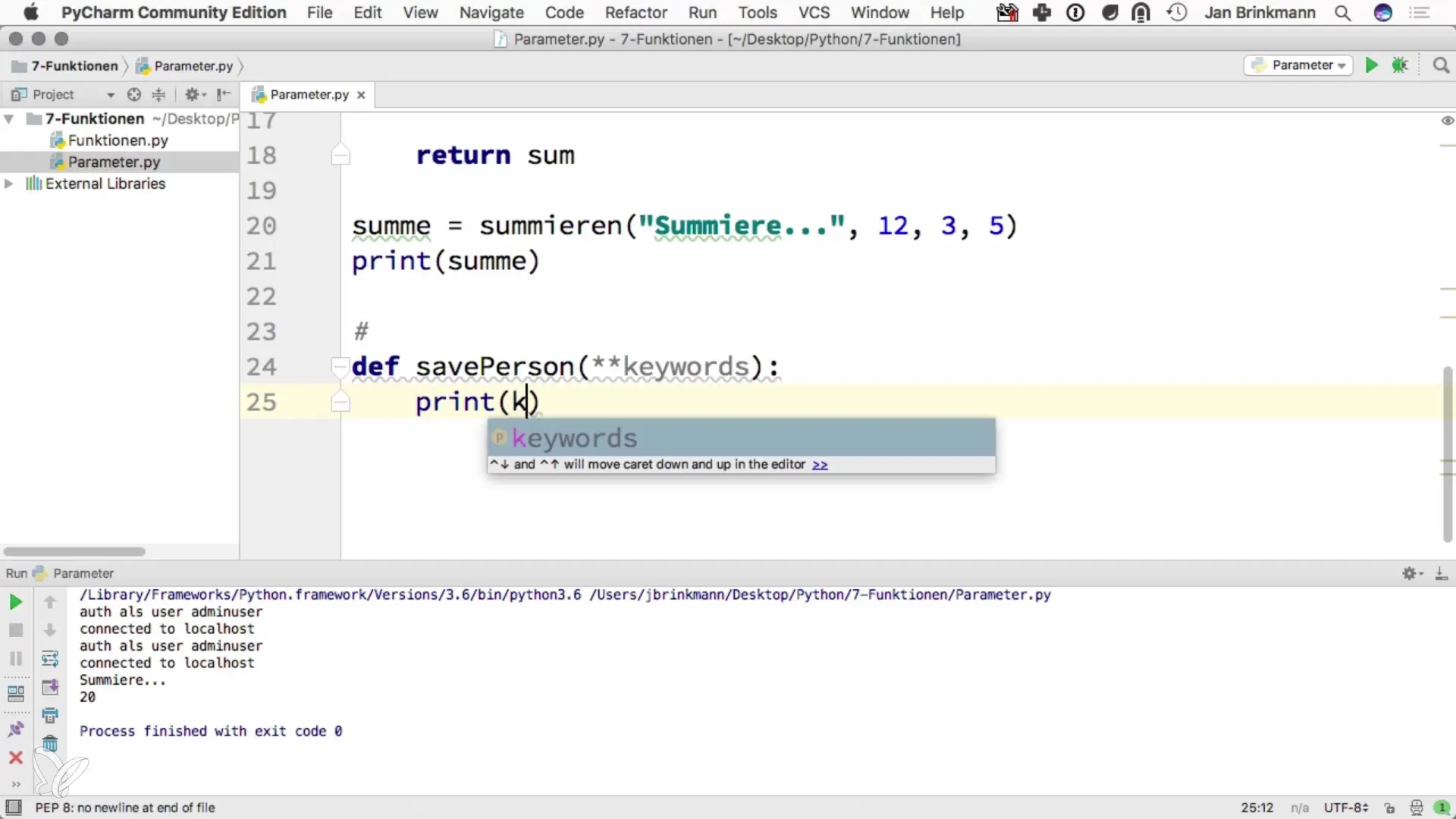
Here, each piece of information passed is presented in a readable form.
Summary – Programming with Python – Parameters in Detail
This guide has covered the various types of parameters in Python functions, including positional parameters, keyword parameters, default values, and dynamic parameters. By understanding these concepts correctly, you can make your code more flexible and maintainable. Use these techniques to elevate your programming skills to the next level.
Frequently Asked Questions
What are positional parameters?Positional parameters are parameters that are expected to be specified in the function according to their order.
How are keyword parameters used?Keyword parameters allow you to specify arguments in any order by passing the parameters with their names.
What are default values?Default values are predefined values for parameters that are used when no value is passed.
What is the difference between *args and kwargs?*args is used to pass a variable number of positional arguments, while kwargs is used to pass keyword arguments in the form of a dictionary.


